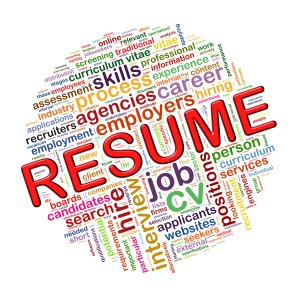By Kayla Matthews
The resume is a fairly straightforward document, but multiple resume formats exist for appealing to employers. Hiring managers don’t spend a lot of time poring over paperwork, so job seekers need to craft resumes that make them stand out. To do this, they must consider the job position and the standards of that field.
Combining all these elements in the creation of a satisfactory resume is complex. However, job seekers are more likely to succeed at it when they familiarize themselves with different types of resume formats.
1. Functional
Functional resumes focus on skills and accomplishments over employment history. A list of relevant skills will start near the top of the resume and continue for the rest of the page.
Some people who create functional resumes choose not to include work history at all. If they do, they list it near the end of the resume, and they only give information on job titles and former employers’ names.
The functional format lends itself well to those with limited work experience, such as recent college graduates. This type of resume also serves individuals with significant gaps in their career or those looking to change careers.
2. Chronological
Employers commonly expect to see chronological resumes crossing their desks. Chronological resumes set the standard for resume formats, and they’re arguably the easiest to create. They list current job experience first, and all other positions follow from most recent to oldest. How far back one can go depends on the individual, but a good rule of thumb is to avoid exceeding 10 years. If the applicant has more than a decade of experience, they can choose to list only the number of years the employer requires.
This format suits job seekers with ample experience in their respective fields and little to no employment gaps. It displays how long the individual worked, what cities they worked in and what job positions they held.
3. Combination
A combination resume does what its name implies — it combines features of the chronological and functional resume. On a resume like this, professionals list their employment history while also highlighting skills they acquired at each job. This format prevails at displaying people’s capabilities within the context of the tasks they performed, which helps employers envision how the candidate can benefit the company.
However, the abundance of information can get lengthy, so applicants must remain aware of this and streamline their resume. This format matches with senior-level individuals who possess substantial employment opportunities, skills and accomplishments.
People creating SES resumes for government or military jobs can benefit from analyzing the combination technique. SES applications resemble combination resumes in their critical eye for detail and a clear focus on relevant skill sets. One must know how to incorporate detailed ECQs to begin developing a proper SES, and they must understand how to sell their qualifications to succeed.
4. Targeted
Job seekers often create targeted resumes for openings where they meet many of the qualifying marks. Every item on a targeted resume gears itself toward the specific job the individual is applying for. Individuals tailor their skills, work history and education to fit the position. For example, if someone applies to a book publishing company for the position of a developmental editor, they might list editing classes they took in their education section. For skills, they’d include concept organization and manuscript evaluation.
The targeted format is the more time-consuming of the four, but it pays off when the employer sees how well the applicant fills the spot. An applicant who finds a position they are well-suited for should use this format when applying.
Those who opt for targeted resumes must keep in mind that honesty is key. Attempting to lie about or embellish certain qualifications will be noticeable if the employer calls for an interview and asks for details.
5. Curriculum Vitae
Individuals in the educational field commonly use CVs when applying to jobs. CVs emphasize academic achievements such as conferences, presentations, journal publications and papers. While applicants outside the educational field desire to condense their resumes, those within it tend to make their CVs several pages long to capture their successes. Employers in fields of scientific and medical research expect to encounter many lengthy CVs. Those looking for jobs in academia or research would do well to begin compiling a list of relevant items for a CV.
Diligence Is Key
Job applicants should select the type of resume format that hits their intentions and sets them apart from others. The process becomes more straightforward when they know what they’re looking for and what the employer is expecting.
About the Author: Kayla Matthews writes about communication and workplace productivity on her blog, Productivity Theory. Her work has also appeared on Talent Culture, MakeUseOf, The Muse and Fast Company.
Photo by Helloquence on Unsplash



